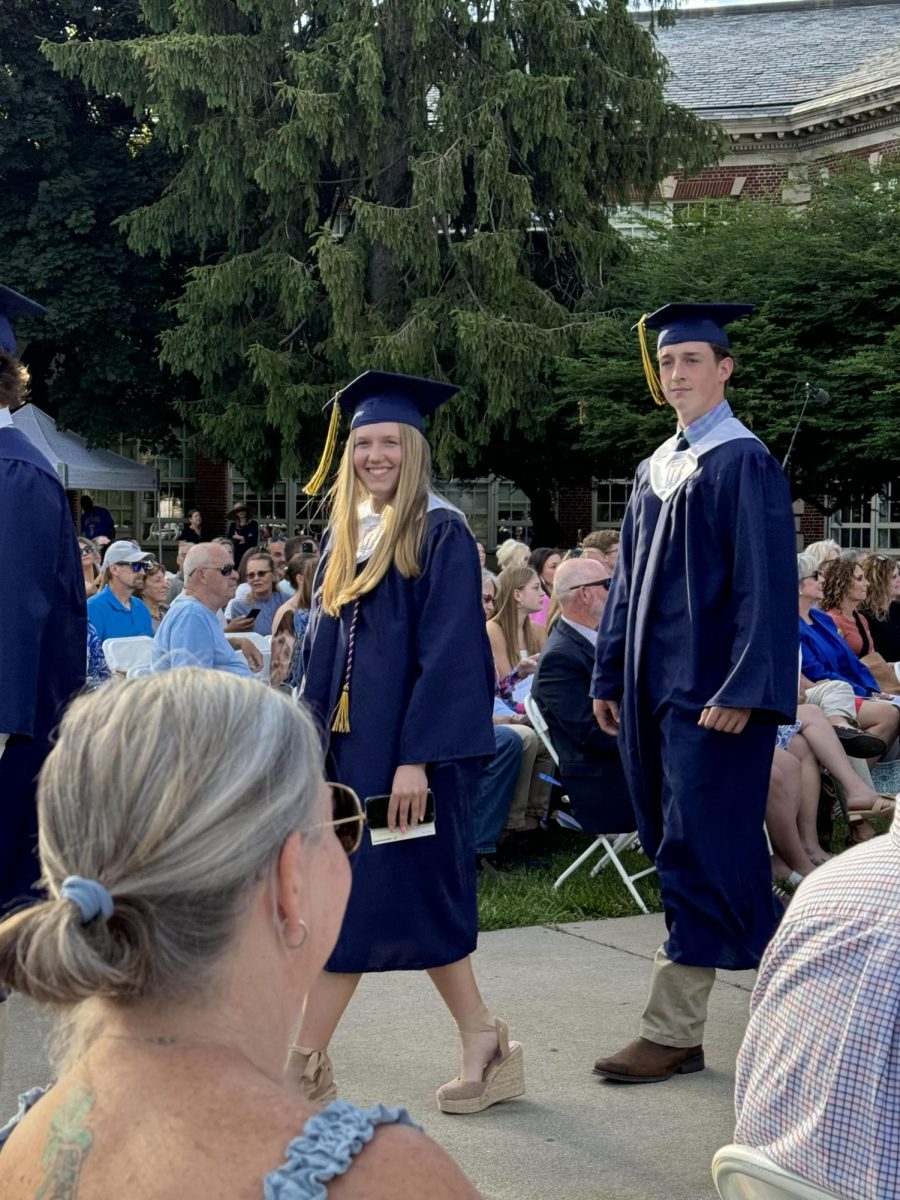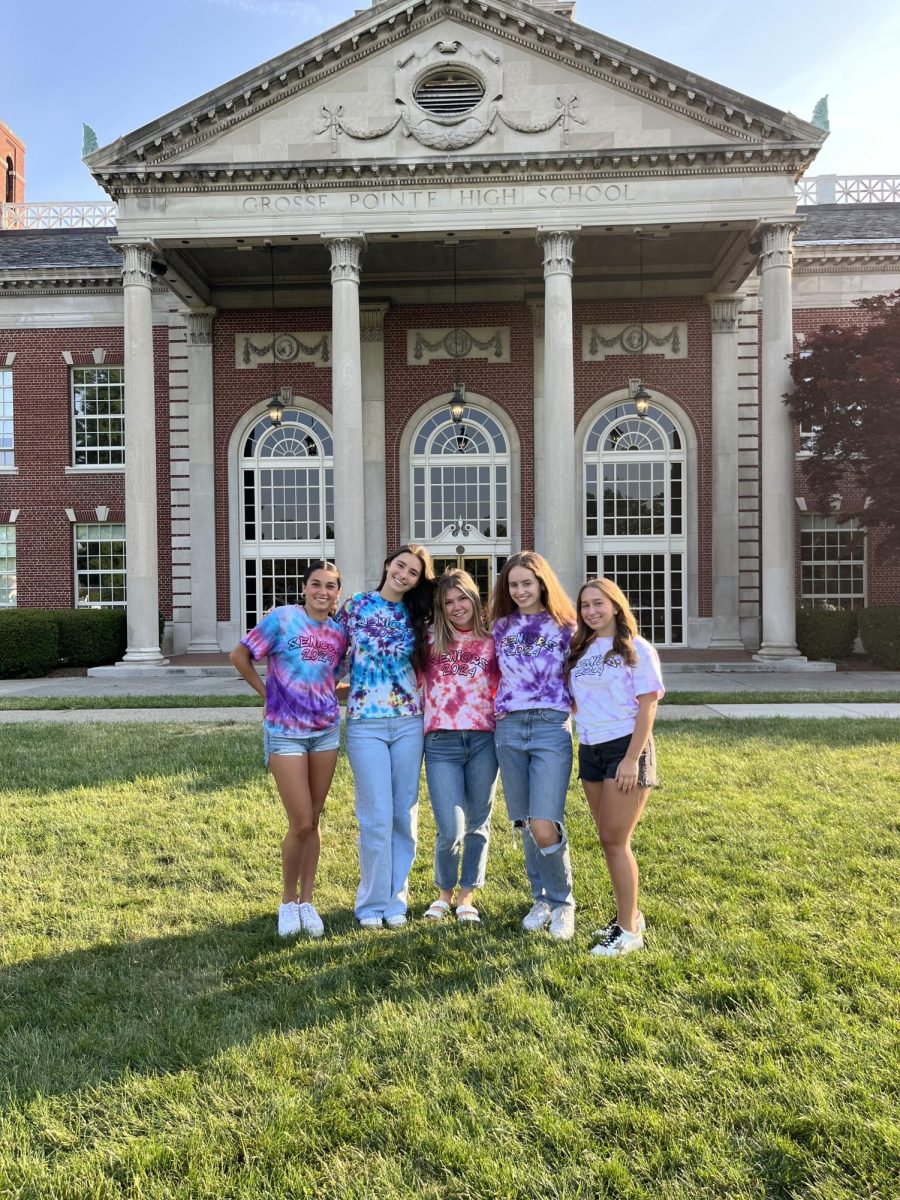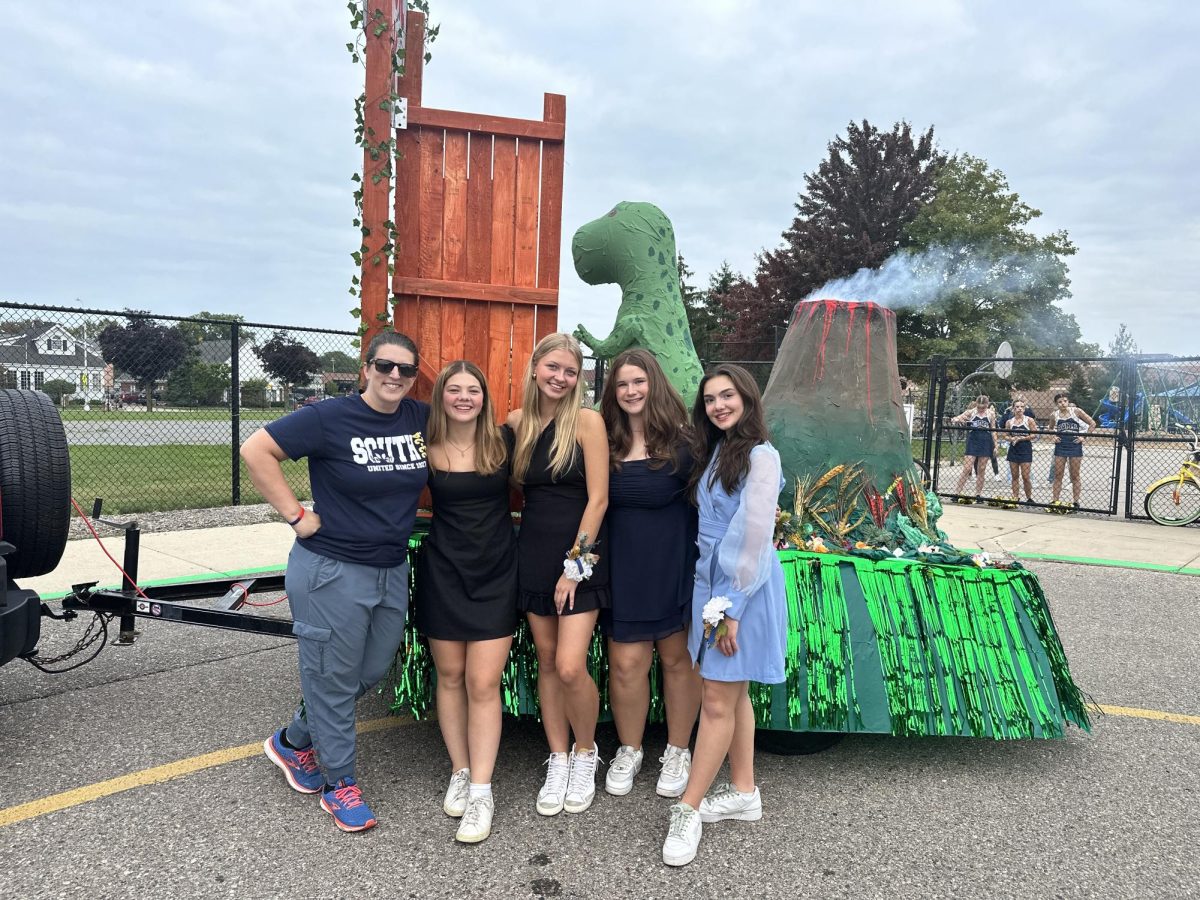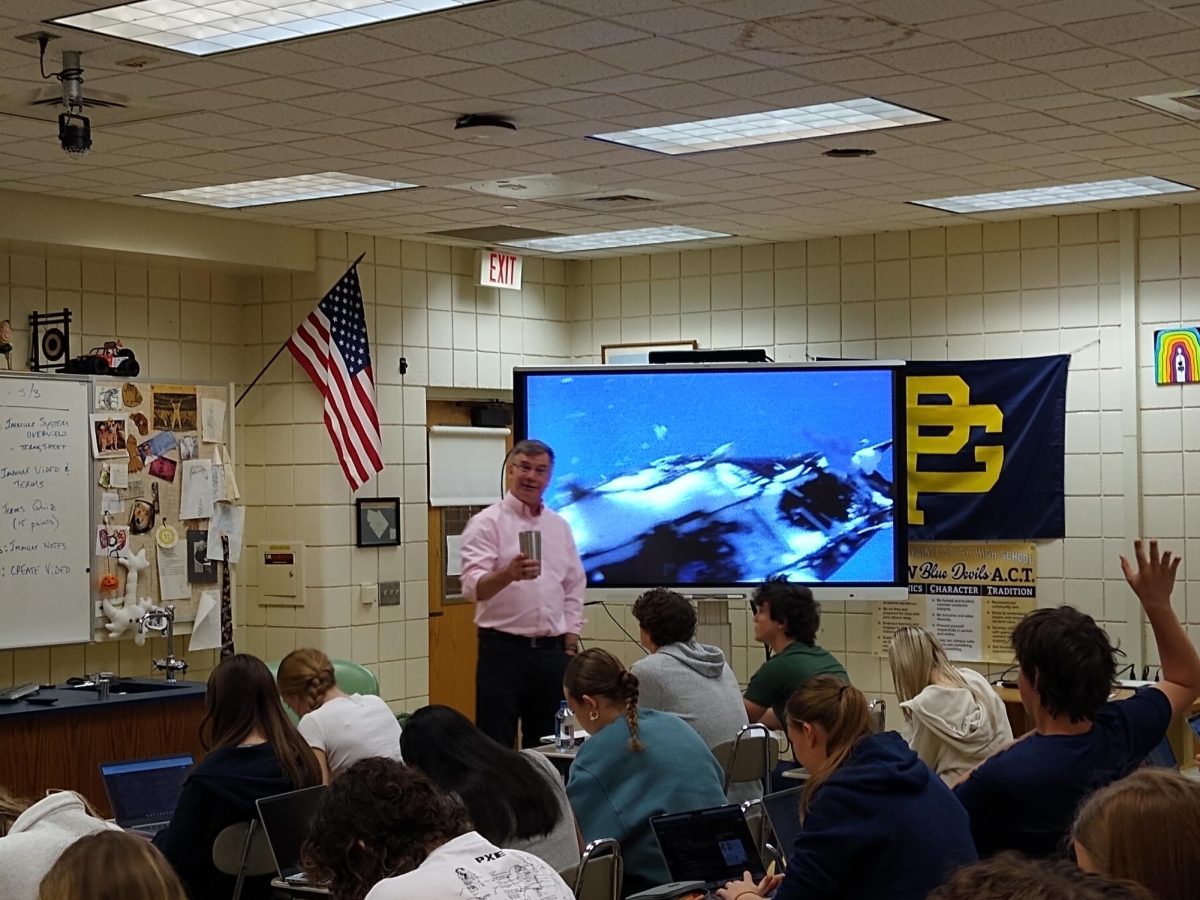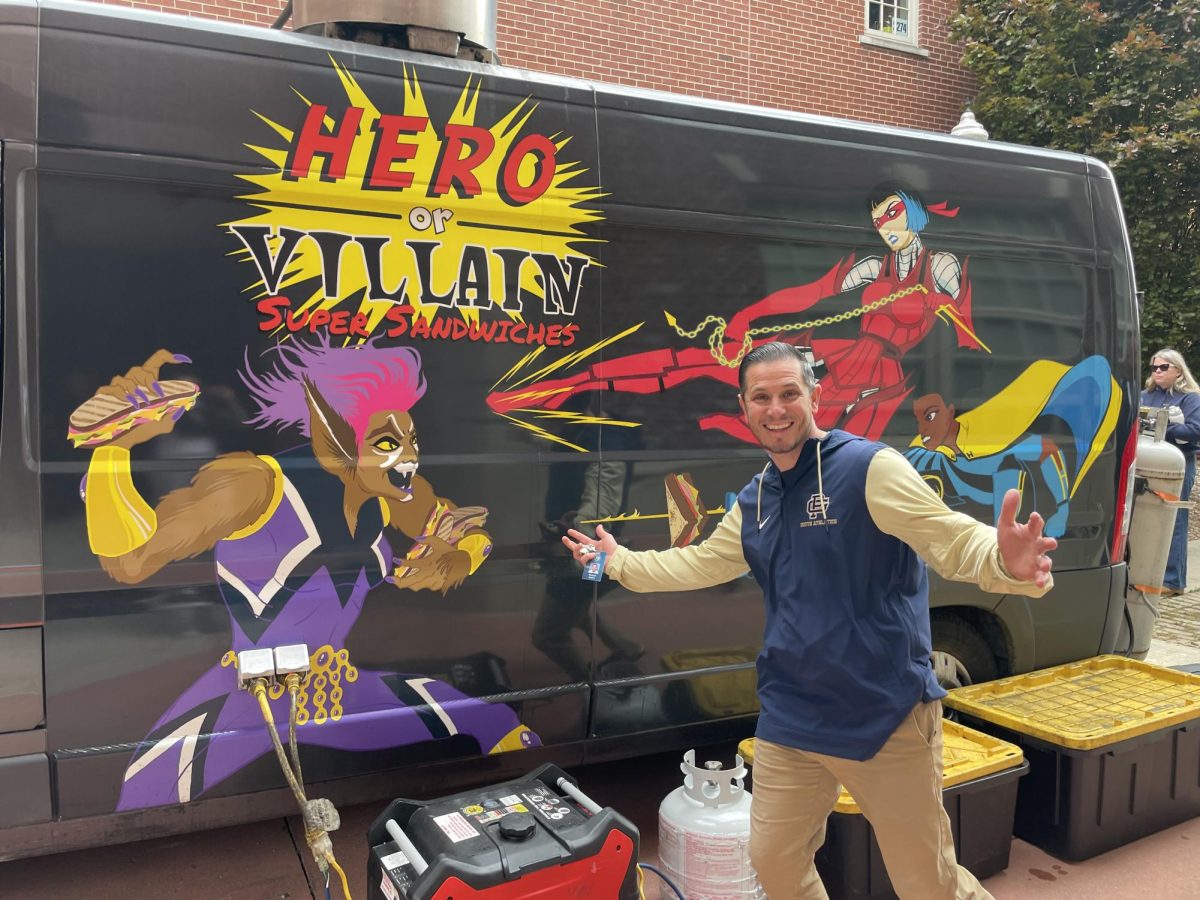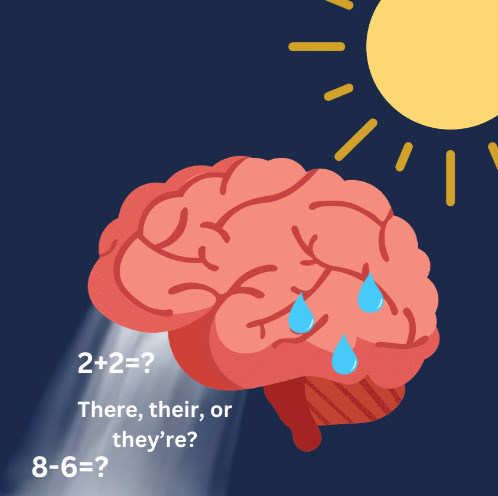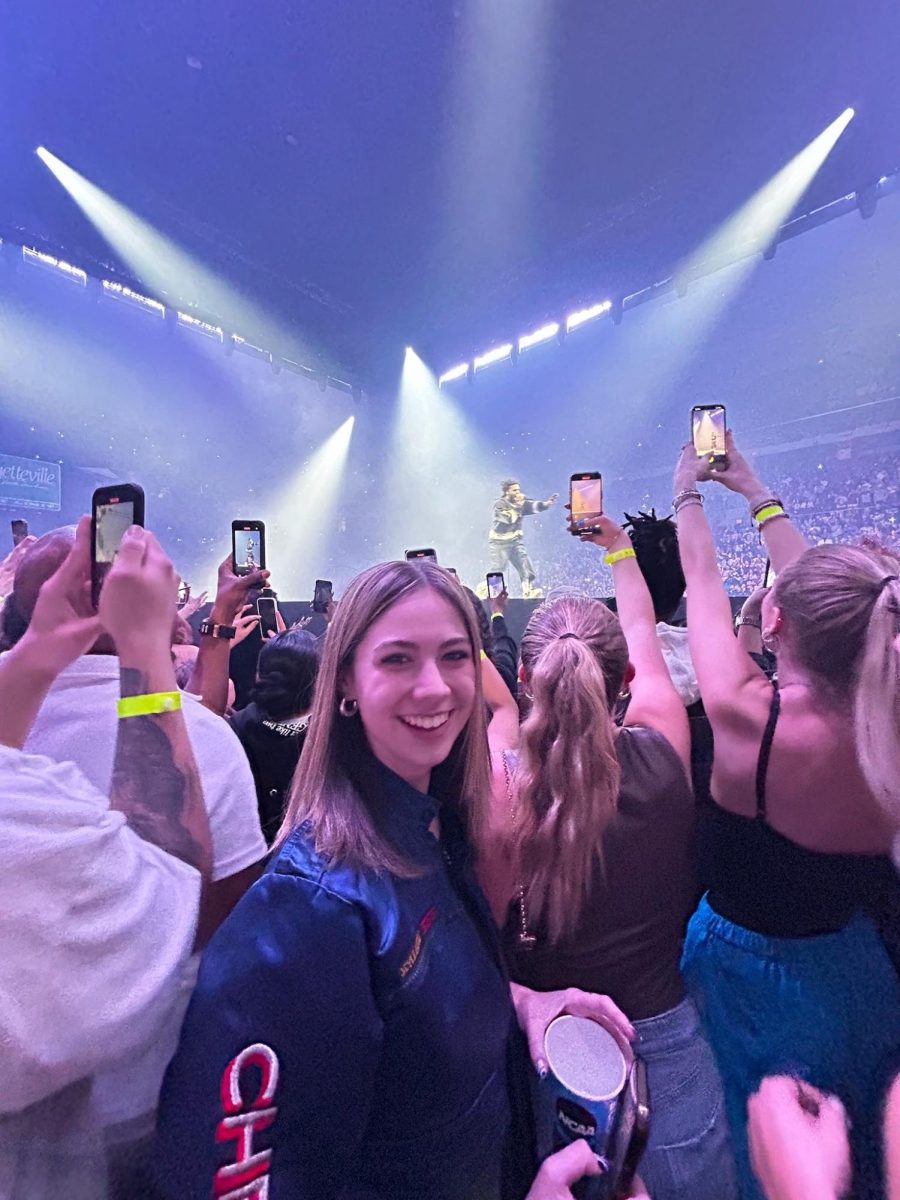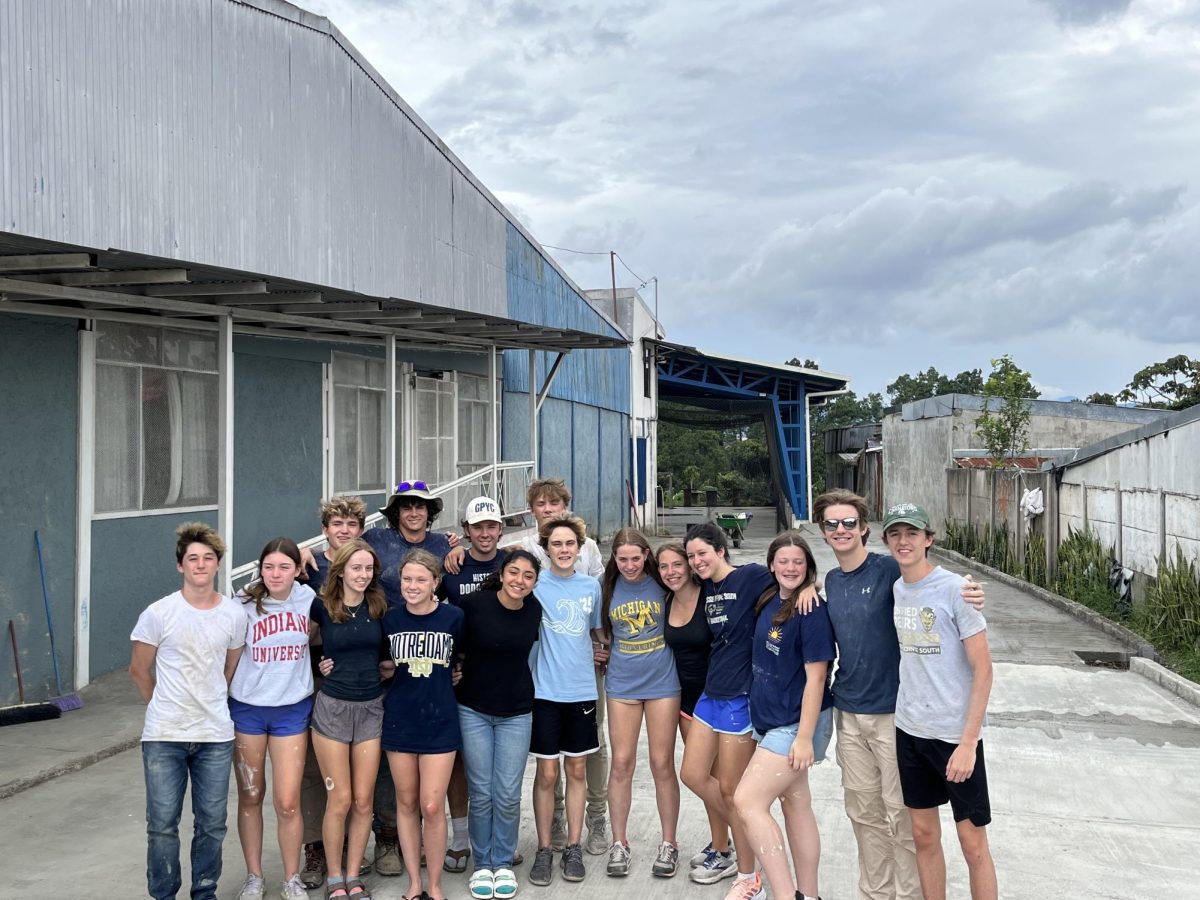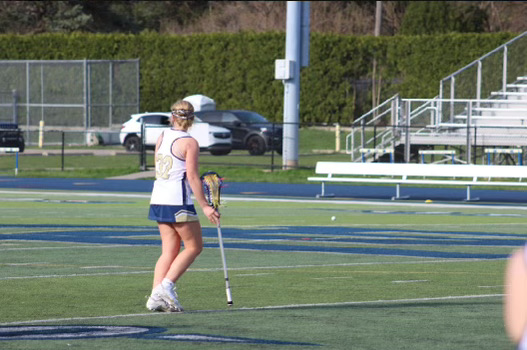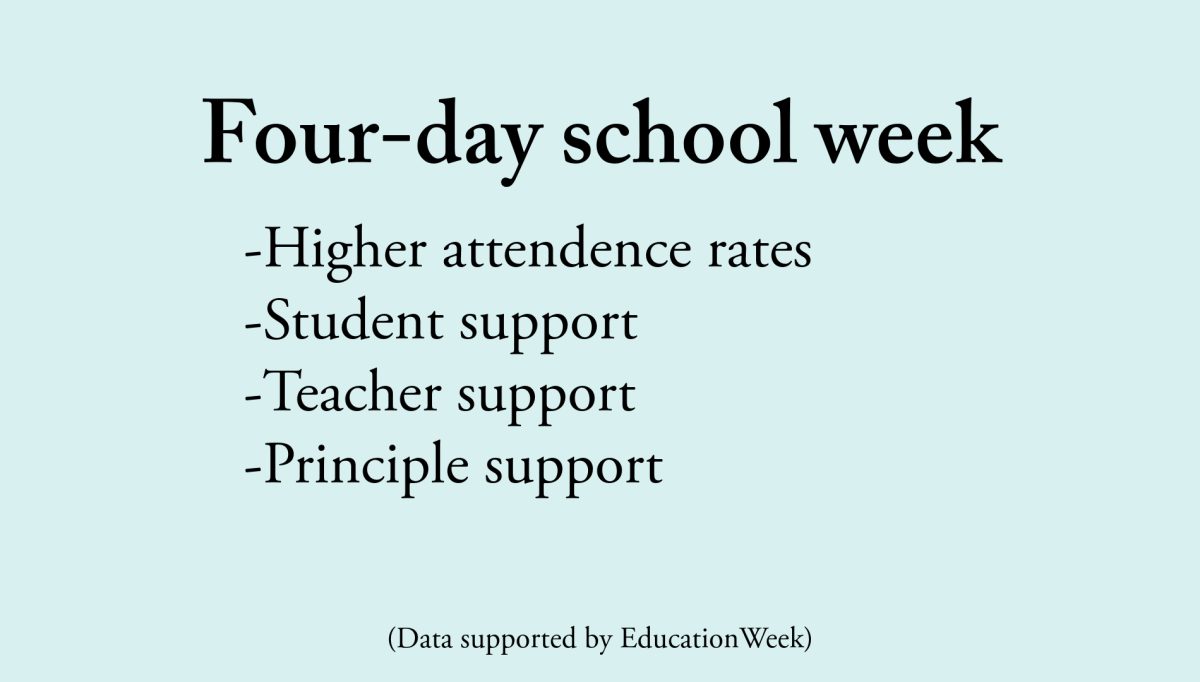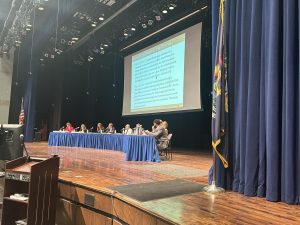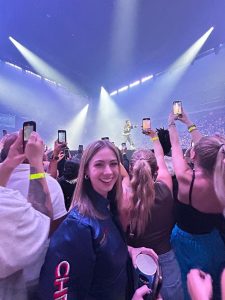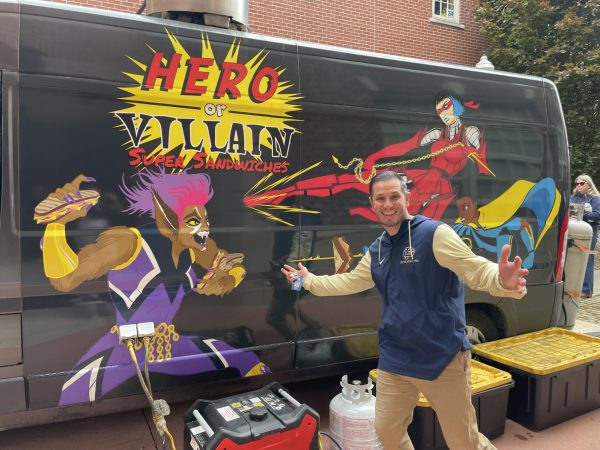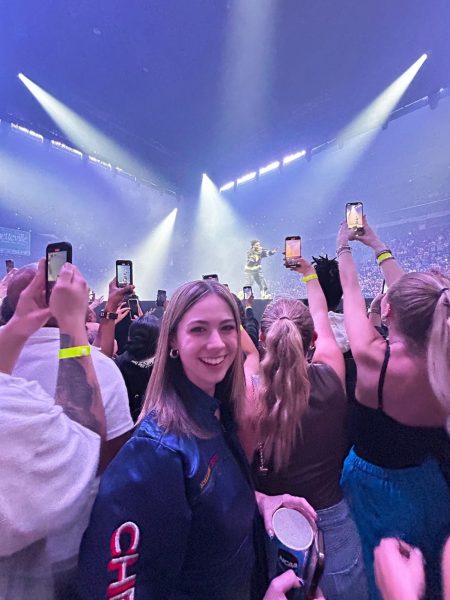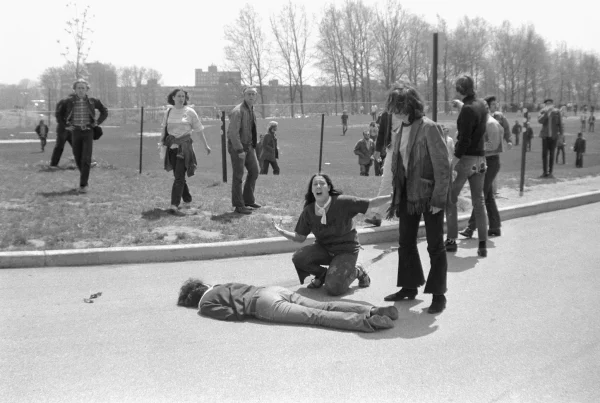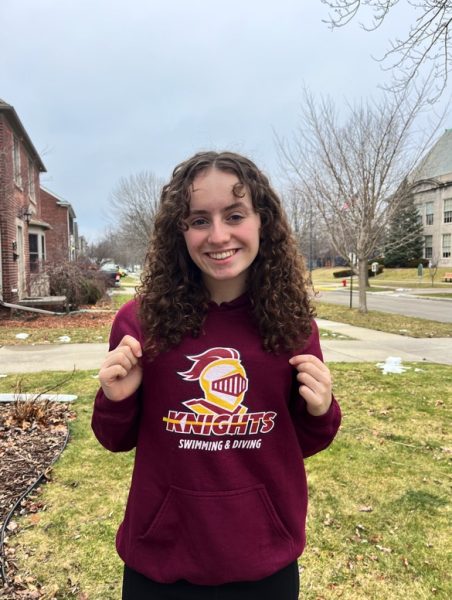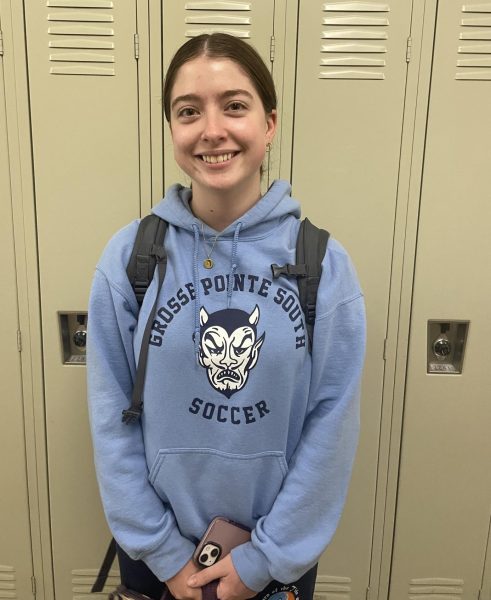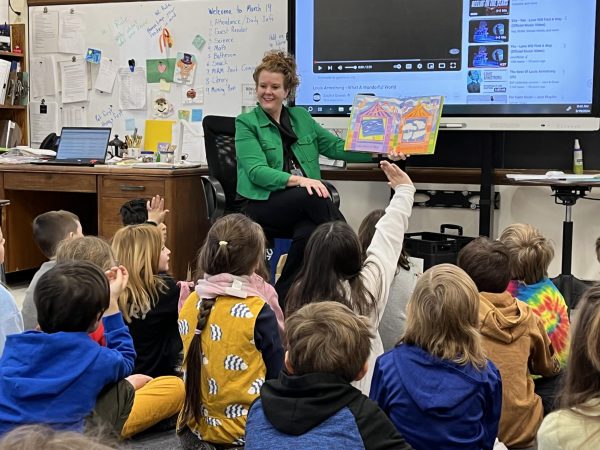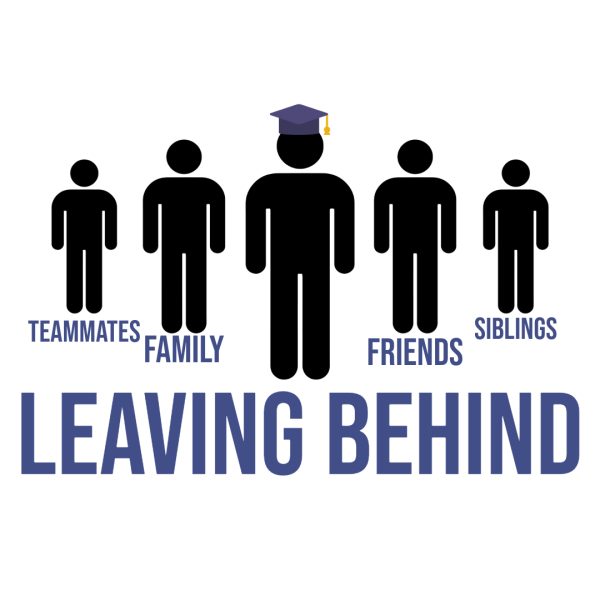Movies in class help student’s memorization
October 31, 2019
For students like Keely Conlan ‘21, watching videos in class can be beneficial since they give her a better understanding of the material she learns in class, but this is not always the case.
“We watch videos in classes like AP Psychology, Chemistry, History, and Biology,” Conlan said. “A lot of my science classes use videos and they are basically just in-depth explanations of the class and comparisons to more relatable things.”
According to Addie Ulku ‘20, she would watch movies in both her Latin class with Mr. Smith and World History class with Mr. Pascoe
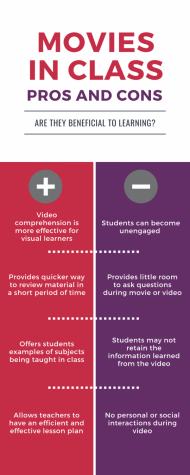
and watches video clips in her current AP Psychology class with Mrs. Parent.
“In Latin, we would always watch Harry Potter because the characters always spoke in Latin to cast their spells,” Ulku said. “In world history, Mr. Pascoe would turn on movies about the time period that we were studying.”
Mrs. Parent teaches AP Psychology and English courses at South, and uses videos most often in her psychology classes, but also tries to incorporate them into her English classes.
“I really liked the videos that are relatable, so like TV shows that they may have encountered this phenomenon that’s happened in the TV show before,” Parent said. “I also try to use videos that perhaps are more informational and can extend the understanding of what it is where talking about in class.”
According to Conlan, some videos are helpful for learning units in class some aren’t, it depends on the length of the video and how descriptive the videos are.
“Most of the time, it makes it easier to fully understand videos when they are not hours long and if they are short and get the point across,” Conlan said. “It’s easier to understand for me personally in classes like psychology where the videos are extremely helpful and impact my grade for the better.”
Ulku said she enjoys watching movies because it gives her a break from the typical lecture and it’s fun to actually view something that they are learning about in class.
“I find that the movies that teachers provide are helpful because it’s a different way of showing students material,” Ulku said. “I think during lectures, students can doze off at times, but during a movie, there’s always something going on.”
Parent experiences that with longer clips, maybe 6 or 7 minutes or so, she can definitely see students sometimes checking their phones or putting their heads down.
“Unfortunately, I’ve had to tell some of my classes that if they keep putting their heads down then we’re going to take notes, which I really don’t want to do because that’s more work for both my students and for myself,” Parent said. “I try to approach those instances with like reasoning and putting it into perspective.”
According to Parent, she finds that she uses videos much more often in her AP Psychology class than her English classes.
“The classes that I don’t use as many videos in has content that doesn’t lend itself as naturally to videos whereas psychology is every day all around us type thing,” Parent said. “When you’re teaching 18th-century British literature, that is not something that is all around us.”
Ulku finds that movies help her remember the material, and a lot of times she remembers something a character said that really stood out to her.
“For the most part, I feel like I can always pay attention to what I am watching,” Ulku said. “I don’t see a difference in my learning with or without movies, but that doesn’t mean that I don’t enjoy taking a break from the usual notes.”
According to Parent, she is always positively surprised by how much students remember from videos she plays in class for them.
“For example, if we were watching a documentary on the Salem witch trials, it amazes me that two weeks later, kids will bring up lines from the documentary,” Parent said. “Those instances really reaffirm the fact that it is worthwhile.”

